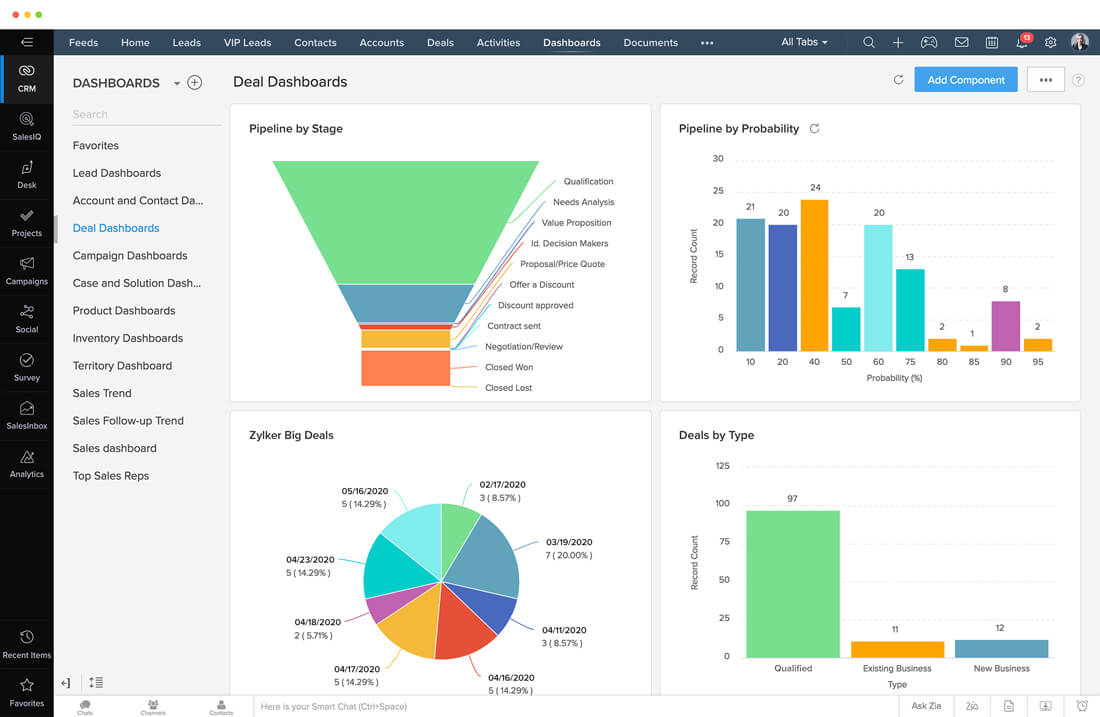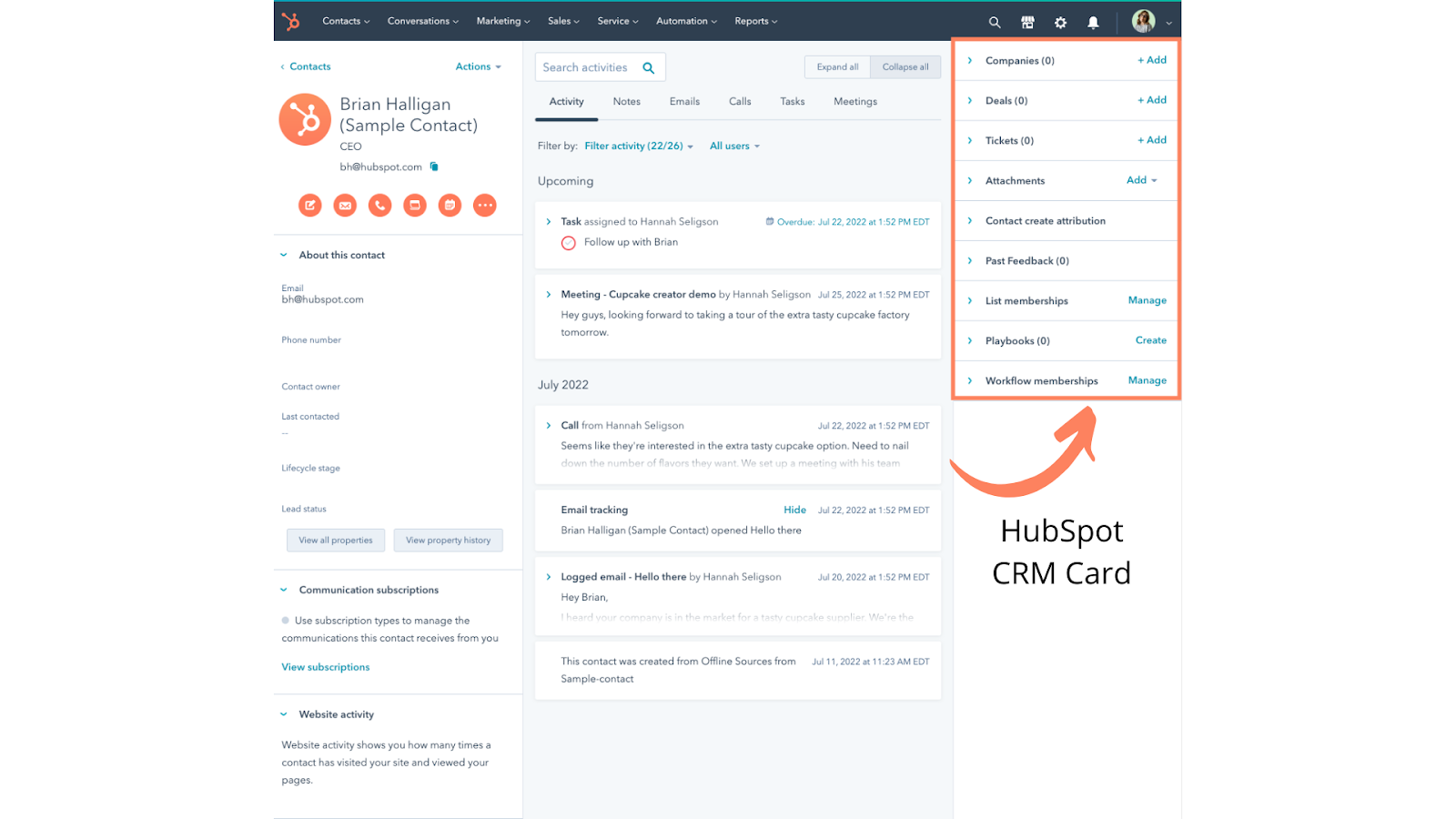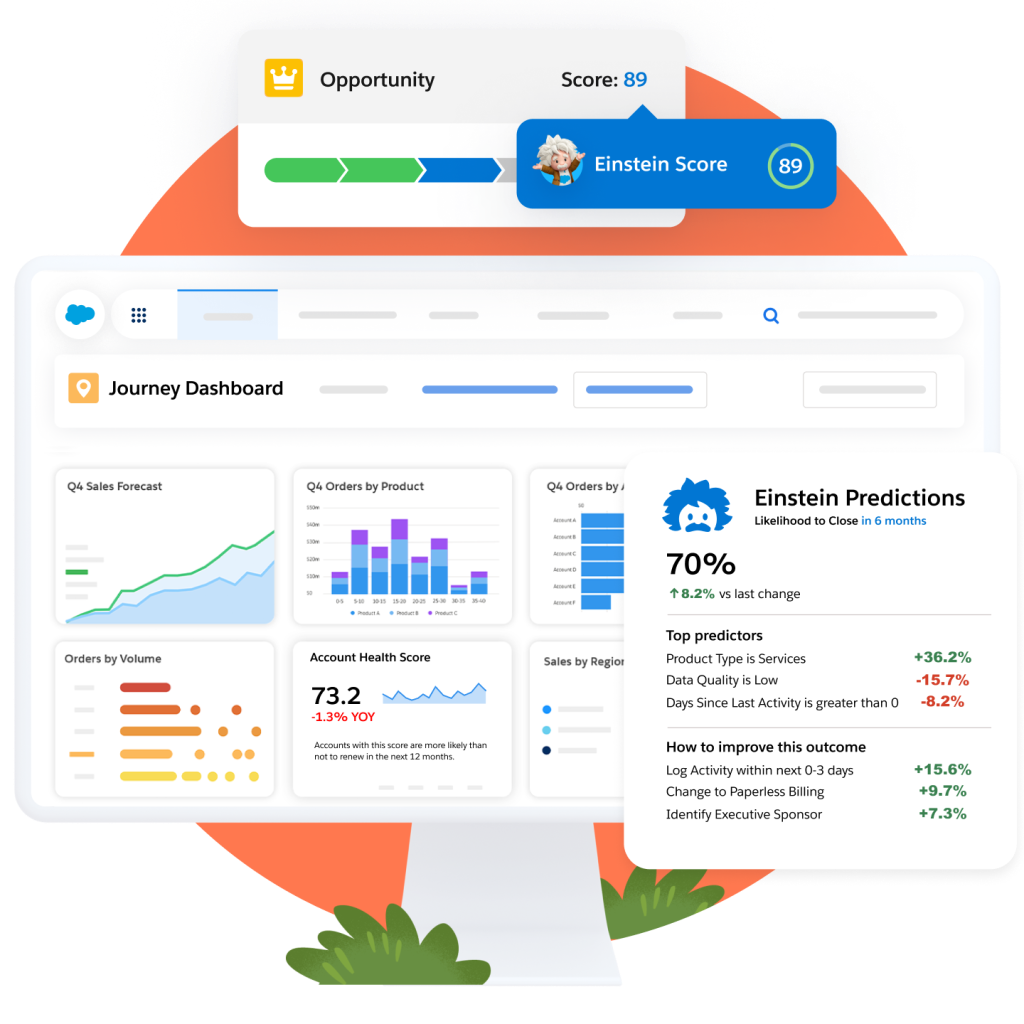Choosing the right CRM software in Saudi Arabia is no longer a luxury—it’s a necessity for businesses that want to compete in a digitally evolving market. As Saudi Arabia continues its Vision 2030 transformation, companies are shifting to smarter systems that streamline sales, marketing, and customer support.
But not all tools are created equal. From cloud CRM solutions to Arabic language CRM software, today's business leaders need platforms that not only fit local needs but also scale as they grow.
Whether you're a small business in Riyadh or an enterprise operating across the Kingdom, the right CRM can help you close more deals, build lasting relationships, and stay ZATCA-compliant. In this guide, I’ve handpicked the top 12 CRM platforms designed for Saudi businesses in 2025—based on features, local usability, and long-term value.
Let’s dive into the best options that combine global standards with Saudi market readiness.
What to Look for in CRM Software in Saudi Arabia (2025)

Choosing CRM software in Saudi Arabia isn’t just about flashy dashboards—it’s about finding a system that actually aligns with your business goals. From improving your sales pipeline to enhancing customer retention, the right CRM can drive measurable impact when chosen strategically.
In 2025, Saudi businesses face unique demands—from evolving regulations to rapid digital transformation. That’s why features like Arabic language CRM software support, data localization, and integration with local tools are more important than ever.
Scalability also plays a major role. Whether you're an ambitious startup or an established enterprise, your CRM needs to grow with you—not hold you back.
If you’re managing remote teams or hybrid operations, mobile accessibility and cloud CRM capabilities are critical. You want your team to access customer data securely and instantly, whether they’re in Riyadh or working remotely across KSA.
Must-have CRM features for Saudi businesses in 2025:
- ZATCA integration for seamless invoicing and tax compliance
- WhatsApp CRM integration to connect with Saudi consumers where they already are
- Built-in Arabic language interface to improve user adoption across departments
Security, support, and regional adaptability are key differentiators in the Saudi CRM market. Many local businesses overlook CRM software Riyadh vendors that offer on-ground support and compliance guidance—an edge when navigating KSA’s data privacy laws.
The best CRM platforms also offer modular features for different industries, whether you’re in retail, healthcare, or B2B services. Tools tailored for CRM for small business Saudi Arabia users offer simplified interfaces and lower costs without compromising core capabilities.
Above all, prioritize platforms that go beyond customer management—they should give you actionable insights, automate workflows, and improve decision-making. With the right CRM in place, your business can achieve more than just operational efficiency—it can unlock real, sustainable growth.
12 Best CRM Software in Saudi Arabia for 2025
1. Zoho CRM

I used this CRM solution for managing leads, automating workflows, and syncing communications across multiple teams. Zoho CRM stood out for its simplicity and flexibility—it offered a wide range of tools without being overwhelming.
The platform supports Arabic language CRM software, which made it easy to roll out across different teams with varying language preferences. As a cloud CRM, it allowed access from anywhere, which is especially useful when dealing with distributed or hybrid teams.
ZATCA compliance isn't built in, but it can be configured using Zoho’s finance tools and custom workflows. For businesses looking for a scalable, customizable CRM that balances affordability with advanced features, Zoho is a strong contender.
2. HubSpot CRM

I found this platform useful for organizing contacts, managing pipelines, and automating outreach. HubSpot CRM offers one of the cleanest user interfaces and provides a generous free tier to get started with core features like deal tracking, email templates, and contact segmentation.
While Arabic support is limited, the platform’s intuitive layout makes it accessible for most teams. I used third-party integrations to connect HubSpot with ZATCA-compliant invoicing tools and found the setup manageable even without developer help.
As a CRM for small business in Saudi Arabia, HubSpot is particularly useful for teams focused on inbound marketing and customer experience. It’s flexible enough to scale and integrates smoothly with tools like Gmail, Outlook, and WhatsApp (via integrations).
3. Salesforce

I used this CRM solution for managing complex sales pipelines and customizing workflows across departments. Salesforce excels in scalability and flexibility, offering a wide range of tools tailored to enterprise-level operations.
It provides Arabic language CRM software support through localization packages and is one of the few platforms that can be fully tailored for ZATCA integration. I found the automation features, reporting, and app ecosystem to be incredibly robust, especially for multi-team collaboration.
This platform is best suited for large businesses or organizations with specific customization and compliance requirements. While it does have a learning curve, it’s ideal for those who need full control over data structure, sales processes, and customer engagement.
4. Freshsales (by Freshworks)
I used this CRM platform for tracking leads, managing client conversations, and automating sales tasks. Freshsales combines ease of use with strong sales automation features, including built-in phone, email, and contact scoring.
It integrates with WhatsApp CRM tools, which makes it great for real-time communication. Although Arabic support isn’t native, the interface is simple and user-friendly. I also found ZATCA integration possible through third-party apps like Zapier.
Freshsales is a good fit for businesses looking for an affordable CRM that combines communication and automation. The mobile app is reliable, and its visual pipelines help make daily workflow easier for sales teams.
5. Microsoft Dynamics 365 CRM
I used this CRM solution for managing B2B relationships, project tracking, and automating business workflows. Microsoft Dynamics 365 stands out for its tight integration with Office tools like Outlook, Excel, and Teams.
It offers strong Arabic language support, and I found its ZATCA integration to be one of the most complete among enterprise-grade CRMs. The platform also allows detailed customizations for complex sales and service operations.
As a CRM software in Saudi Arabia built for larger teams, Dynamics is excellent for organizations that require layered automation, permissions, and compliance. It’s not the easiest to learn, but it’s highly powerful once set up.
6. Bitrix24
This CRM platform impressed me with how much functionality it offers out of the box. Bitrix24 isn’t just a CRM—it includes task management, team chat, document storage, and workflow automation, making it ideal for teams looking to centralize operations.
I found the Arabic interface helpful for onboarding team members who preferred a localized experience. It also offers basic invoicing tools that can be adjusted for ZATCA compliance, especially when using its finance modules. As a cloud-based CRM platform in KSA, it’s flexible and well-suited for remote or hybrid teams.
While the interface can feel overwhelming at first due to the sheer number of features, once configured, Bitrix24 becomes a powerful all-in-one solution. It’s a strong choice for SMEs that want collaboration, communication, and customer management in one ecosystem.
7. Pipedrive
What stood out about Pipedrive was its laser focus on sales pipeline visibility. I used this CRM to manage leads and deals with a simple drag-and-drop interface that made day-to-day sales tasks fast and clear.
Although Arabic support is not available natively, the platform’s intuitive design makes it usable for most bilingual teams. I also found that connecting it to invoicing platforms through Zapier helped manage ZATCA compliance without needing custom development.
Pipedrive is ideal for startups or sales-focused teams that want something lightweight, visual, and productivity-driven. It’s not overloaded with features, but what it does, it does very well—and it helps keep your team focused on closing deals.
8. Zendesk Sell
I found Zendesk Sell to be particularly useful when aligning sales with customer service workflows. It integrates tightly with Zendesk’s support suite, which is ideal for teams that want visibility across the entire customer journey.
While Arabic language support is not built in, the interface is clean and simple enough for quick team adoption. I used third-party connectors to sync sales data with my ZATCA-compliant billing system, which worked reliably.
Zendesk Sell is best for companies that value communication tracking and fast access to client interaction history. It’s not the most customizable platform, but if your focus is on streamlining your sales follow-ups and service handovers, it’s a smart pick.
9. Insightly CRM
I explored Insightly when I needed a CRM that combined relationship management with light project tracking. It offers a solid balance between contact organization, task assignment, and pipeline tracking without overwhelming the user.
While Arabic support isn’t native, the platform’s layout is easy to navigate, and its customization options help shape it around different business needs. For ZATCA compliance, I integrated Insightly with QuickBooks and used workflow automation to trigger invoicing steps.
This CRM is particularly helpful for service providers or consultancies that handle multi-phase projects. If you want a tool that handles both client data and internal deliverables in one place, Insightly is an efficient choice.
10. Odoo CRM (KSA-hosted)
Odoo CRM stood out for its modular design and tight integration with accounting, inventory, and HR systems. I found it especially useful when building a CRM stack within a broader ERP ecosystem tailored for Saudi SMEs.
It supports Arabic language CRM software functionality and offers strong configuration flexibility for teams with mixed technical skills. ZATCA-compliant invoicing is also available through Odoo’s finance module, which saves time and reduces the need for third-party tools.
If you're looking for an all-in-one platform that grows with your operations, Odoo delivers impressive value. It's a great option for companies that want CRM capabilities alongside full business process control.
11. EngageBay
EngageBay appealed to me because of its simple setup and bundled marketing features. I used it to manage email campaigns, track leads, and automate follow-ups—all from one dashboard.
It’s a fully cloud-based CRM solution, and while Arabic interface support isn’t provided, the clean design makes it accessible for most users. I managed to connect it with external billing software to ensure ZATCA compliance, and the process was straightforward.
This platform is perfect for small businesses or startups looking for a lightweight all-in-one system with built-in automation. It doesn’t require a big budget, yet it delivers a full customer lifecycle management experience.
12. Nimble CRM
I found Nimble particularly helpful for staying on top of contacts across email and social media. It automatically gathers information from platforms like LinkedIn, Twitter, and Gmail, creating dynamic contact records.
While it lacks Arabic support and direct ZATCA integration, Nimble shines in its simplicity and relationship-building focus. It’s a fully cloud CRM platform, which makes it convenient for accessing insights anywhere, anytime.
For freelancers, personal brands, or small sales teams in Saudi Arabia, Nimble offers a minimal yet effective way to manage outreach. It’s best for those who prioritize connections and engagement over complex CRM mechanics.
Industry-Specific CRM Options in Saudi Arabia
Not every business needs the same type of CRM. In Saudi Arabia, where industries range from real estate and retail to healthcare and professional services, choosing a CRM that fits your vertical can make all the difference. Industry-specific CRM solutions offer tailored features, integrations, and workflows designed to meet the daily operational needs of different business types.
Below are some CRM recommendations tailored to the most prominent sectors in Saudi Arabia:
CRM for Real Estate Companies in Saudi Arabia
Real estate businesses need CRMs that manage property listings, client communication, follow-ups, and sales documentation. Platforms like Zoho CRM, Bitrix24, and Pipedrive offer customizable pipelines and automation that work well for brokers and developers.
CRM for eCommerce and Retail Businesses
Retail CRMs must handle customer segmentation, promotions, loyalty tracking, and omnichannel interactions. Freshsales and Odoo CRM are ideal for these needs, especially with features like WhatsApp integration, inventory sync, and POS compatibility.
CRM for B2B and Professional Services
Consultancies, agencies, and legal firms benefit from CRMs that support relationship tracking, task management, and long sales cycles. Insightly, Zoho CRM, and Salesforce offer tailored workflows for managing service-based engagements.
CRM for Healthcare Providers and Clinics
Healthcare-focused CRMs often include appointment scheduling, patient record tracking, and secure communications. While not all global CRMs are healthcare-specific, Microsoft Dynamics 365 and Zoho CRM can be adapted for clinics with custom modules and HIPAA-like configurations.
CRM for Automotive and Logistics Businesses
For logistics, dealerships, and auto service centers, CRMs must support inventory, customer follow-ups, and after-sales workflows. Salesforce, Odoo, and Freshworks offer strong process automation and API integrations for fleet and logistics management.
Each industry in Saudi Arabia has its own operational rhythm—and the right CRM should feel like an extension of your business rather than just another tool. Choosing industry-relevant features will increase adoption, reduce manual tasks, and ultimately drive growth.
Benefits of Localized CRM Software in KSA
When it comes to choosing the right CRM, localization is more than just language—it’s about compliance, culture, and connectivity. In Saudi Arabia, using CRM software that’s adapted to the local business environment can lead to better adoption, smoother workflows, and long-term success.
Here are the key advantages of using localized CRM solutions in KSA:
Arabic Language Interface
A CRM with a fully translated Arabic interface makes the platform more accessible for employees across departments. It improves usability, reduces training time, and increases adoption—especially in organizations with Arabic-speaking teams.
ZATCA and VAT Compliance
Many localized CRM systems either offer native support or easy integration with ZATCA-compliant invoicing systems. This ensures your business adheres to Saudi Arabia’s tax regulations, avoids penalties, and automates financial documentation.
Local Support and Hosting
Regional vendors or cloud providers that offer CRM software Riyadh hosting or Gulf-based infrastructure ensure better performance, security, and compliance with local data laws. It also means faster customer support with time-zone alignment.
Cultural and Operational Fit
Localized CRM platforms often reflect local sales processes, buying behavior, and communication preferences. Features like WhatsApp integration, custom date formats (Hijri/Gregorian), and bilingual support can align more closely with day-to-day business in the Kingdom.
In a market that’s rapidly digitalizing under Vision 2030, localized CRM software helps Saudi businesses stay compliant, competitive, and connected. Whether you're a startup or an enterprise, investing in a CRM built for KSA realities ensures your technology works with you—not against you.
How to Choose the Right CRM for Your Business

With so many CRM platforms available today, choosing the right one can feel overwhelming. But the best CRM for your business in Saudi Arabia isn’t always the one with the most features—it’s the one that fits your team, goals, and regional requirements.
Here’s a step-by-step guide to help you make the right decision:
1. Define Your Business Needs
Start by identifying what you need the CRM to do. Is it lead tracking? Email automation? Customer support? For CRM for small business Saudi Arabia teams, simplicity and ease of use may take priority, while large enterprises may focus on custom workflows and scalability.
2. Check for Arabic and Mobile Support
Make sure the CRM offers an Arabic language CRM software option or at least a bilingual interface. Also, prioritize platforms with mobile apps if your team works remotely or in the field.
3. Look for ZATCA & VAT Integration
To remain compliant with Saudi tax regulations, choose CRM tools that integrate with ZATCA-compliant invoicing systems or can connect to finance software like Zoho Books or QuickBooks.
4. Evaluate Cloud vs On-Premise Options
Most modern businesses prefer a cloud CRM for flexibility and lower upfront costs. However, if data control is a concern, explore locally hosted solutions or platforms that offer hybrid deployments.
5. Test the User Experience
A CRM that’s hard to use won’t get used. Request a free trial or demo, involve your actual users, and assess how easy it is to onboard new team members or customize fields and workflows.
Choosing a CRM isn’t just a tech decision—it’s a growth decision. By aligning your CRM with your team’s needs and Saudi Arabia’s business landscape, you set the stage for stronger customer relationships and long-term success.
FAQs About CRM Software in Saudi Arabia
1. What is the best CRM software in Saudi Arabia?
There’s no one-size-fits-all answer. The best CRM software in Saudi Arabia depends on your business size, industry, and goals. For startups and SMEs, tools like Zoho CRM or HubSpot offer great value. For enterprises, Salesforce or Microsoft Dynamics 365 provide advanced customization and compliance features.
2. Is there Arabic language support in CRM tools?
Yes, many CRMs offer Arabic language CRM software support or localized interfaces. Platforms like Bitrix24, Microsoft Dynamics, and Odoo CRM are known for their bilingual capabilities, which improve adoption across Saudi teams.
3. Can CRM software integrate with ZATCA e-invoicing systems?
Some CRMs offer ZATCA-compliant invoicing features or integrations with local accounting tools. While not all platforms support this natively, many—including Zoho, Odoo, and Dynamics 365—can connect to billing and finance tools that ensure full tax compliance.
4. Are there cloud-based CRM solutions in KSA?
Absolutely. Most modern platforms are cloud CRM solutions, offering flexibility, mobility, and low maintenance. Providers like HubSpot, Freshsales, and EngageBay are fully cloud-based, while some like Odoo offer local or hybrid hosting options.
5. Which CRM is best for small businesses in Saudi Arabia?
For SMEs in Saudi Arabia, the best options are often affordable, easy to use, and offer essential automation. Tools like Zoho CRM, Freshsales, and Bitrix24 are widely used by small businesses for their balance of features and price.
6. Do I need technical knowledge to set up a CRM?
Not necessarily. Many CRMs today are built for non-technical users with drag-and-drop tools, templates, and guided setups. However, if you need complex workflows or ZATCA integration, you might require technical support or a local implementation partner.
Final Thoughts
Choosing the right CRM software in Saudi Arabia is about more than features—it’s about finding a platform that fits your team, supports local compliance, and grows with your business. From Arabic interface options to ZATCA-compliant integrations, the best CRM is the one that aligns with your goals, workflows, and customer expectations.
Whether you’re a startup looking for simplicity or an enterprise needing deep customization, the Saudi market offers both local and global CRM solutions to meet your needs. Tools like Zoho CRM, Salesforce, HubSpot, and Odoo prove that with the right technology in place, you can build stronger relationships, automate key processes, and unlock scalable growth.
Take the time to explore your options, test free plans where available, and prioritize user adoption and long-term value. With the right CRM, your business isn’t just managing contacts—it’s building smarter, more connected customer experiences.



